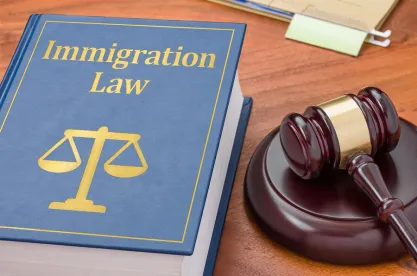On September 6, 2017, the day after Attorney General Jeff Sessions announced the rescission of DACA, 15 states and the District of Columbia filed a lawsuit challenging President Donald Trump’s DACA rescission. The states included in the lawsuit are Connecticut, Delaware, District of Columbia, Hawaii, Illinois, Iowa, Massachusetts, New Mexico, New York, North Carolina, Oregon, Pennsylvania, Rhode Island, Vermont, Virginia, and Washington.
Separately, on September 11, 2017, California, together with Minnesota, Maryland, and Maine, also filed a lawsuit challenging the rescission.
The contentions in both lawsuits are similar and bear similarities to the contentions raised in the suits filed against the President’s travel ban. They include:
-
The rescission and Trump’s statements about Mexicans (who comprise more than 78% of DACA grantees) target individuals for discriminatory treatment based on their national origin and violate the equal protection guarantee in the Fifth Amendment.
-
A refusal to prohibit the use of DACA information for purposes of immigration enforcement violates the due process clause of the Fifth Amendment.
-
The implementation of the rescission memorandum violated the Administrative Procedures Act because it was both substantively and procedurally arbitrary and capricious. More than 800,000 people have relied on DACA since 2012, Sessions’ explanation for the rescission is not persuasive enough. His belief was that President Barack Obama did not have the authority to enact DACA, and it would not survive a legal challenge that had been threatened by a number of Attorney Generals and the Governor of Texas. Of course, if a court were to find that DACA was legally enacted, Sessions’ argument falters.
For relief, the plaintiffs have requested that the rescission be declared unauthorized and contrary to the Constitution and in violation of the APA. Plaintiffs also have requested that the government be enjoined from using information obtained in any DACA application for immigration enforcement purposes.
A number of private companies are expected to file supporting briefs and some are vowing to pay the legal costs to fight the deportation of any of their DACA employees.




 />i
/>i

